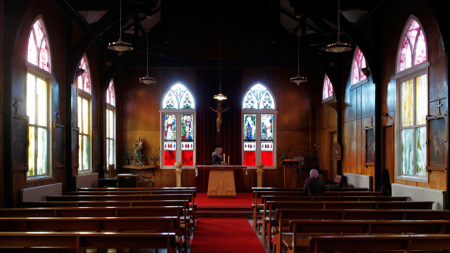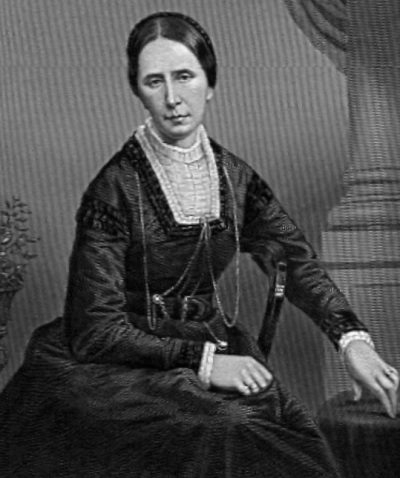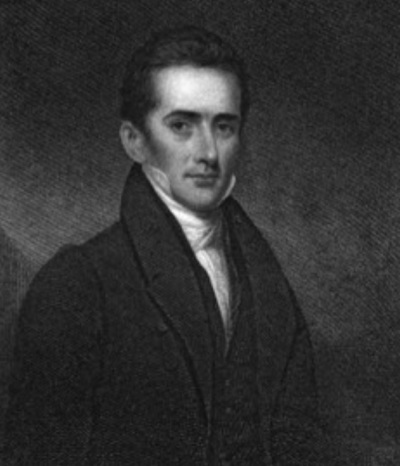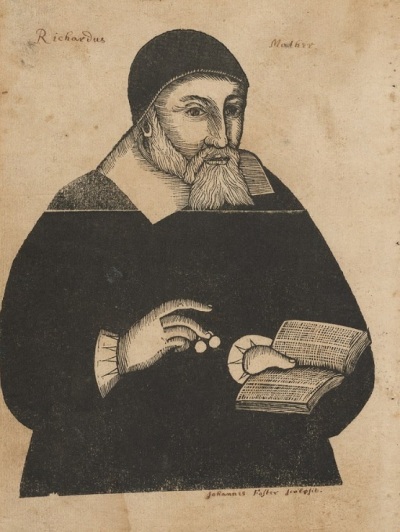This week in Christian history: Spiritual writer’s born-again experience, Richard Mather dies

Throughout the extensive history of the Church, there have been numerous events of lasting significance.
Each week brings anniversaries of impressive milestones, unforgettable tragedies, amazing triumphs, memorable births, notable deaths and everything in between.
Some of the events drawn from over 2,000 years of history might be familiar, while other happenings might be previously unknown by most people.
The following pages highlight events that happened this week — April 18 through April 24 — in Christian history.
They include the birth of a prominent British Christian philanthropist, the conversion of an influential 19th century theology student, and the death of the father of Puritan minister Increase Mather.
Angela Burdett born – April 21, 1814

This week marks the anniversary of when Angela Burdett, a prominent wealthy Christian woman known for her charitable donations, was born in London, England.
Born into wealth and eventually attaining the title of baroness, Burdett was known for her extensive giving to projects aimed at elevating the poor and advancing the Church of England.
“Burdett saw her sudden wealth as a God-sent opportunity for doing good. Deeply religious, she was strongly attached to the Church of England, and many of her charities were connected with it,” noted the Christian History Institute.
“Among her proposals were the erection of churches in England and endowment of new dioceses in Britain’s colonies.”
Burdett would die of bronchitis in 1906 and was buried in Westminster Abbey, with King Edward VII having reportedly said that she was “after my mother, the most remarkable woman in the kingdom.”
James Brainerd Taylor converts – April 23, 1822

This week marks the anniversary of when James Brainerd Taylor, a native of Connecticut whose spiritual writings influenced the faith walks of others, had a born-again experience.
A theology student who died before age 30 due to chronic illness, Taylor was active in religious revivals in New Jersey and helped to found a local Bible society, as well as a Sunday School for African Americans.
Six years after first declaring his conversion to Christianity as a teenager living in New York, Taylor had what was described as a “second conversion” while in college.
“This experience had a very strong bearing on Taylor's religious character and his whole future conduct and was joyfully remembered and referred to by Taylor months and years after its occurrence,” explained Uncommon Christian Ministries.
“This intensely dramatic, ‘second conversion’ experience later attracted the attention of Charles Finney and many other nineteenth-century advocates of the various forms of the Arminian/Wesleyan holiness theology.”
Richard Mather dies – April 22, 1669

This week marks the anniversary of when Richard Mather, the father of Puritan minister Increase Mather and the grandfather of Cotton Mather, died in Dorchester, Massachusetts Bay Colony.
A native of Lowton, Lancashire, England, Mather migrated to the English colony of Massachusetts and became a prominent minister, teacher, and writer in Dorchester.
“Richard’s most respected work is his summation of principles as adopted at the Cambridge Synod of 1648 and considered to be the clearest statement of Puritan Congregationalism,” noted Britannica.
“He is remembered for his part, with other ministers, in the literal translation of the Psalms for the Bay Psalm Book (1640), which were set to already accepted tunes; in his preface to that work, Richard excused the terrible results by explaining that the editors would not take ‘poeticall licence to depart from the true and proper sence of David’s words.’”





















